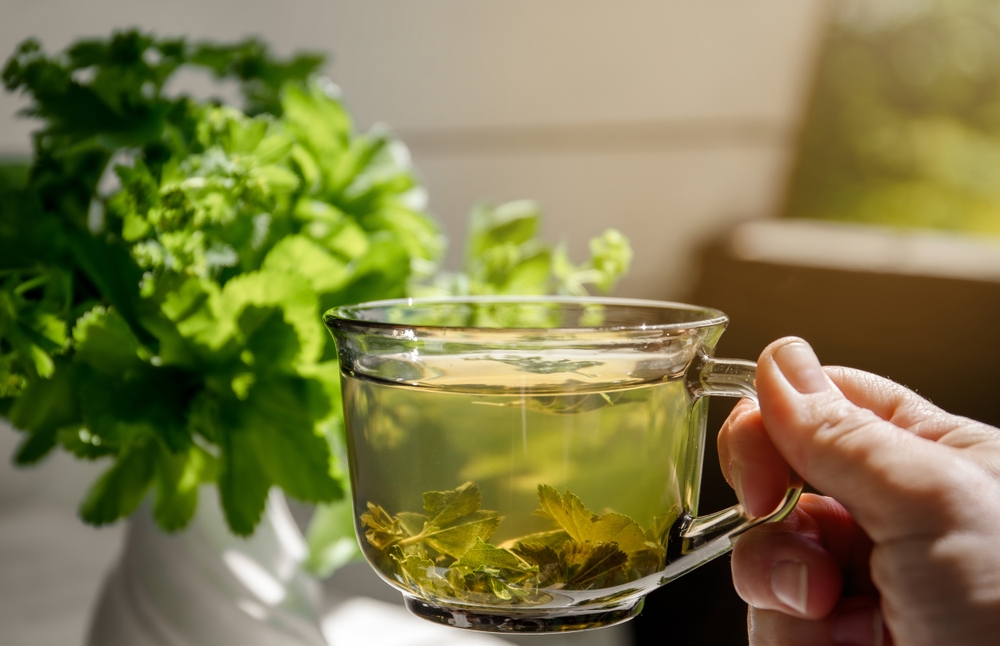
What is dry eye?
Dry eye is a common condition that affects millions of people worldwide. If left untreated, it can cause discomfort, visual disturbances, and even damage to the eye’s surface. Dry eyes occur when tears aren’t able to provide adequate lubrication for the eyes. This can happen for various reasons, including hormonal changes, environmental factors, and certain medications. While many factors contribute to dry eyes, diet and nutrition play a significant role in managing and alleviating the symptoms.
Causes of dry eyes
The National Eye Institute identifies several risk factors for dry eyes. The condition can result from disruptions in the tear film, which is crucial for maintaining eye health and lubrication. The tear film comprises fatty oils, aqueous fluid, and mucus, and any imbalance in these layers can lead to dry eye disease. Medical conditions such as hormonal changes, autoimmune diseases, inflamed eyelid glands, and allergies often trigger these imbalances.
People over 50, women, contact lens users, individuals with a known vitamin A deficiency, and those with autoimmune conditions like lupus are at an increased risk of dry eyes and its associated complications. Additionally, certain medications and heightened corneal nerve sensitivity can further raise the risk of developing dry eyes.
The importance of hydration
Hydration is crucial for maintaining the moisture balance in the eye. Dehydration can reduce tear production, leading to dry eyes. Drinking plenty of water throughout the day can help keep your eyes hydrated and functioning properly.
Hydrating foods
Fruits and vegetables with high water content can contribute to overall hydration levels, supporting healthy tear production. Cucumbers, watermelon, oranges, and strawberries are excellent choices to include in your diet.
Benefits of herbal tea for dry eyes

Certain herbal teas, such as chamomile and green tea, have anti-inflammatory properties that can help soothe dry eyes. Incorporating these teas into your daily routine can provide additional hydration and relief from dry eye symptoms.
Don’t forget the benefits of staying in shape
Unsurprisingly, exercise also benefits eye health. Since the eyes are interconnected with the rest of the body, optometrists can assess blood pressure and overall health through an eye exam. Regular exercise can reduce the risk of eye diseases. Studies have indicated that regular physical activity positively impacts ocular perfusion pressure, a critical factor in glaucoma, leading to a 25% lower risk compared to inactive individuals. Similar research has shown that exercise decreases the risk of macular degeneration as well.
Vitamins for dry eye
Vitamins play an indispensable role in maintaining overall health, and they are particularly crucial for eye health. A well-balanced diet rich in essential vitamins can help prevent various eye conditions, including dry eyes, macular degeneration, cataracts, and even night blindness.
Omega-3 fatty acids
Omega-3 fatty acids are essential fats that have anti-inflammatory properties. Studies have shown that these fatty acids can help reduce dry eye symptoms by improving the quality of the tear film. Foods rich in omega-3s include fatty fish, like salmon, mackerel, and sardines, as well as flaxseeds, chia seeds, and walnuts.
At our offices in both Carlsbad and Encinitas, we carry EyePromise® EZ Tears™ dry eye supplement to help treat your dry eye symptoms. This daily vitamin is packed with potent Omega-3s and includes natural, ethically-sourced ingredients that helps to relieve occasional dry eye.
Omega-6 and omega-9: essential fatty acids
While omega-3s are well-known for their benefits, omega-6 and omega-9 fatty acids also play a role in eye health. Balancing these essential fatty acids can help maintain the stability of the tear film and reduce inflammation. Sources of these fats include olive oil, avocados, and nuts.
Vitamin A: the eye vitamin
Vitamin A is vital for maintaining the health of the cornea, the eye’s outer surface, and preventing dryness and other vision issues. A deficiency in vitamin A can lead to a condition called xerophthalmia, which can cause severe dryness and damage to the eye’s surface, potentially leading to blindness if untreated. Foods rich in vitamin A include carrots, sweet potatoes, spinach, and kale, making these vegetables an excellent addition to your diet for eye health.
Vitamin C and E: antioxidant powerhouses
Vitamins C and E act as antioxidants, protecting the eyes from oxidative stress and inflammation, which can contribute to dry eye symptoms. Oxidative stress occurs when there is an imbalance between free radicals and antioxidants in the body, leading to cell damage. This damage can affect the tear-producing glands and worsen dry eye symptoms. Vitamin C, found in citrus fruits, berries, and bell peppers, helps protect the delicate tissues of the eye and supports the immune system. Vitamin E, found in nuts, seeds, and green leafy vegetables, works alongside vitamin C to provide a protective barrier against oxidative damage.
Zinc and dry eyes
Zinc is a vital mineral that helps your body absorb vitamin A and supports the production of melanin, a protective pigment in the eyes. A diet rich in zinc can help reduce dry eye symptoms. Good sources of zinc include oysters, beef, pumpkin seeds, and lentils.
Doctor approved vitamins for dry eye
Not sure which brands you can trust? We have curated a range of doctor-approved options so you don’t have to worry. Visit our website to explore the various supplements specifically formulated to support eye health and manage dry eyes effectively.
Avoid processed foods
Processed foods often contain high levels of unhealthy fats, sugar, and salt, which can contribute to inflammation and exacerbate dry eye symptoms. Reducing your intake of processed foods and focusing on nutrient-dense options can help manage dry eyes more effectively.
Creating a nutrient rich meal plan
Dietary modification may be necessary for proper management of dry eyes. A balanced diet that includes a variety of nutrients is essential for overall eye health. By incorporating a range of vitamins, minerals, and healthy fats, you can support your eyes’ natural lubrication and reduce the risk of dry eyes.
Optimizing your diet for dry eye relief—sample diet plan
Here’s a guide to creating a balanced meal plan that prioritizes eye health:
Breakfast
Oatmeal with flax seeds and berries
Oatmeal: A great source of whole grains, which provide B vitamins and fiber.
Flaxseeds: Rich in omega-3 fatty acids, which help reduce inflammation and support tear production.
Berries: High in vitamin C and antioxidants, protecting the eyes from oxidative stress.
Green smoothie
Spinach/Kale: Packed with vitamins A and C, as well as lutein and zeaxanthin, which are beneficial for eye health.
Banana: Provides potassium and natural sweetness.
Chia seeds: Another excellent source of omega-3 fatty acids.
Almond milk: Contains vitamin E and healthy fats.
Lunch
Grilled salmon salad
Salmon: Rich in omega-3 fatty acids essential for reducing dry eye symptoms.
Mixed greens: Provide a variety of vitamins and minerals, including vitamin A.
Avocado: Offers healthy fats and vitamin E.
Lemon vinaigrette: Adds a dose of vitamin C and enhances the flavor without added sugars.
Quinoa and vegetable stir-fry
Quinoa: High in protein and B vitamins.
Bell peppers: Loaded with vitamin C and antioxidants.
Broccoli: Contains vitamins A, C, and E, and supports overall eye health.
Carrots: Rich in beta-carotene (vitamin A).
Snack
Carrot sticks with hummus
Carrot sticks: High in vitamin A.
Hummus: Provides protein, healthy fats, and fiber.
Nuts and seeds mix
Almonds: Contain vitamin E and healthy fats.
Walnuts: Rich in omega-3 fatty acids.
Pumpkin seeds: High in zinc.
Dinner
Baked sweet potato and lentil stew
Sweet potatoes: Packed with beta-carotene (vitamin A).
Lentils: Offer protein, fiber, and B vitamins.
Tomatoes: Rich in vitamin C and antioxidants.
Spinach: Adds vitamins A and C plus lutein.
Grilled chicken with steamed vegetables
Grilled chicken: A lean protein source.
Steamed vegetables (broccoli, carrots, and green beans): Provide a variety of essential vitamins and minerals.
Olive oil drizzle: Adds healthy fats, including omega-9 fatty acids.
Remember regular eye exams
While there are many healthy ways to take care of your dry eyes naturally, such as maintaining a balanced diet and staying hydrated, these methods are not substitutes for professional medical advice. Regular eye exams are vital for early detection and prevention of serious eye issues. An eye care professional can offer personalized advice and monitor your eye health to promptly address any concerns. If your symptoms worsen, schedule an appointment with us. Minor problems can sometimes cause lasting damage if not treated properly. Seeking professional care is crucial for effective solutions. At Beyond Vision Center, we provide comprehensive eye exams and are dedicated to first-class, personalized care. We also specialize in dry eye treatment to ensure your eyes get the best care possible.

Contact us today
Have concerns or any questions? Contact us today by sending a text or calling our Carlsbad number at (760) 438-2020 or our Encinitas number at (760) 944-7177. The BVC team is ready to assist with all your eye care needs. Whether you want to book an appointment, inquire about our services, or learn how we can improve your vision, we're here for you. Contact us today and begin your journey to better vision and eye health!






